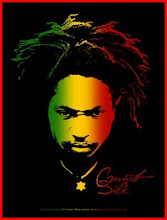Tracing Reggae's Catholic Roots

Less well known, and more bizarre, is that this order of nuns is also partly responsible for the birth of reggae music.The sisters had already been working in Kingston, Jamaica, for 12 years when they founded the Alpha Boys' School in 1892.Its purpose was to house and educate "wayward boys," most of them from backgrounds of dire poverty. With instruments donated by a benefactor, a drum and fife corps was set up which, as the years passed, became a martial brass band. By the mid-20th century, the connection with military music was still a constant, but the Alpha Boys' bandmasters were increasingly influenced by swing and jazz."Without the school, there just wouldn't have been the blossoming of talent on the island in the key period of the `60s and `70s," says Laurence Cane-Honeysett, a music consultant to reggae label Trojan Records, who has compiled the excellent album Alpha Boys' School: Music in Education 1910-2006."When the Jamaican music industry took off, it was totally dependent on those who studied there," he says.A quartet of Alpha alumni, Tommy McCook (pictured), Johnny "Dizzy" Moore, Lester Sterling and the celebrated trombonist Don Drummond, were founder members of the Skatalites and, as such, co-creators of Jamaica's first indigenous pop music.
Bar the odd dent - such as the depiction in the film The Magdalene Sisters of cruelty in their now-defunct Irish orphanages and laundries - the reputation of the Catholic Order of the Sisters of Mercy is of 200 years of good deeds in some of the most underprivileged areas of the world.
Reggae would eventually bloom from these roots at Clement "Sir Coxsone" Dodd's hugely influential Studio One, all built on horn sections featuring Alpharians.Thomas Green


0 Comments:
Post a Comment
Subscribe to Post Comments [Atom]
<< Home